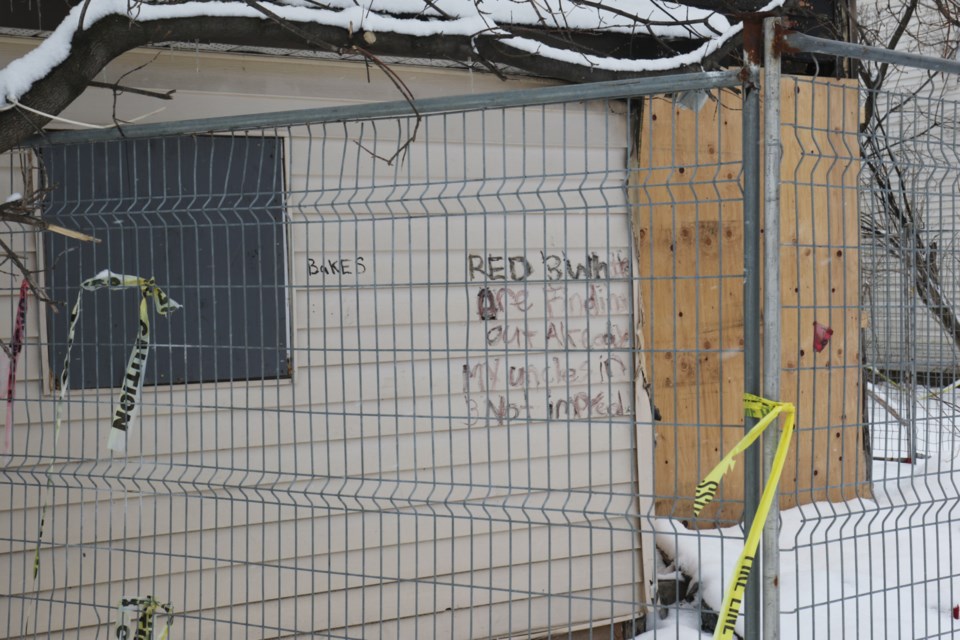City Council will be asked on Monday to introduce a special tax on vacant houses.
If approved, the new tax will be implemented in 2025 for 2024 vacancies.
Shelley Schell, the city's chief financial officer and treasurer, and Peter Tonazzo, director of planning, say this isn't a tax grab.
Rather, it's a step needed to discourage owners from leaving their residential properties unoccupied.
"The VHT (vacant house tax) is not intended to generate revenue," Schell and Tonazzo say in a report prepared for Monday's council meeting.
"The intent is to encourage properties to be used for housing. If the program is successful, the amount of VHT collected annually will likely decrease and could result in an annual operating deficit after offsetting administrative costs of the program.
"If there is excess revenue it would be recommended that it be transferred to a new housing reserve that would be utilized to forward the city's housing initiatives," they say.
"A VHT will motivate property owners to rent out or occupy their empty units. Similarly, a VHT will encourage property owners who do not intend to rent or occupy their vacant units to sell them to someone who will."
The Sault has 27,420 properties in the residential class, 89 of which are believed to be vacant.
The Schell-Tonazzo report recommends a complaint-based approach be used to identify vacant residential properties.
City staff could also register their own complaints on properties identified by staff carrying out duties including taxation and property standards.
The report doesn't recommend an amount for the new tax, although other municipalities with VHTs charge either one per cent or three per cent of the property’s assessment.
"The intent of the program is to encourage owners to move vacant residential property to homes available for occupancy so the rate charged should be looked at as punitive. For comparison, the 2024 residential tax rate, including education is 1.789136 per cent," it says.
"A VHT is meant to increase rental housing supply which may have a downward pressure on rental prices within the city."
If 45 vacant properties are identified, at an average assessment of $115,000, the city could collect $51,750 from a one per cent VHT.
If the tax rate is set at three per cent, it would collect $155,250.
When the new tax program is rolled out, a new tax analyst position would be needed to administer it, Schell and Tonazzo say.
The Ontario government recommends that only self-contained residential units suitable for residential habitation be subject to the VHT.
The province also recommends that no VHT be paid on a property if any of these circumstances apply:
- it is a principal residence
- it is rented out and occupied as a residence by a tenant for at least six months of a taxation year
- it was owned by a registered property owner who has died in the applicable reference year or tax year
- it is owned by a registered property owner who is in care (for example, institutionalized or hospitalized)
- ownership of the property was transferred in the reference year or tax year (where the year of sale or transfer is the reference year or tax year
- it is undergoing major redevelopment or renovations that, in the judgement of the municipality, are being pursued within a reasonable timeframe
- it is subject to a court or municipal order prohibiting occupancy and the owner has made reasonable efforts to remedy the circumstances that led to the order
- it is a seasonal property (including properties that are classified by Municipal Property Assessment Corporation as falling under property codes 363,364,385,391 ,392, and 3es)
- it is otherwise uninhabitable for reasons beyond the owner's control
- other circumstances identified by a municipality as representing an appropriate use of a residential property (for example, a municipality may wish to exempt properties required for occupation for employment purposes)
Monday's city council meeting will be live-streamed on SooToday starting at 5 p.m.
